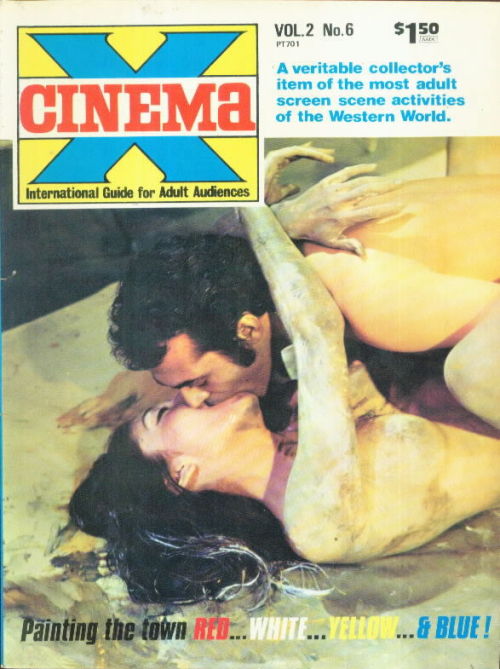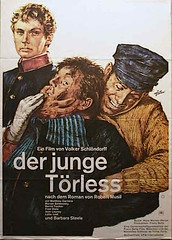
Still from Gradiva (C’est Gradiva qui vous appelle) by Alain Robbe-Grillet
The good people at Mondo Macabro[1] are releasing Gradiva (C’est Gradiva qui vous appelle), the last film by French master-erotomaniac Alain Robbe-Grillet, Robert Monell points out in a recent post [2].
C’est Gradiva qui vous appelle (2006) is a French language film by Alain Robbe-Grillet starring: James Wilby, Arielle Dombasle and Dany Verissimo. It premiered at the 2006 Venice film festival on September 8 and in French cinemas on May 9 of 2007.
The film, Grillet’s last, is a Franco-Belgian production loosely based on Gradiva: A Pompeiian Fancy by Wilhelm Jensen. The setting has been updated to modern times, at least, no earlier than the 1970s, based on vehicles and appliances seen in the film. It begins with an English art historian named John Locke is doing research in Morocco on the paintings and drawings that French artist Eugène Delacroix (1798-1863) produced when he spent time in that country (back then, a French colony) more than a century before. Locke spots a beautiful, mysterious blonde girl (Gradiva, of course) in flowing robes dashing through the back alleys of Marrakech, and becomes consumed with the need to track her down. Like most of Robbe-Grillet’s cinematic output, this film is highly surrealistic and also involves a surprisingly explicit amount of “sex slave” nudity and S&M, although it is a serious film and not just softcore fluff.
- Some of the film’s prehistory.

A Pompeiian Fancy is a novel by Wilhelm Jensen published by in German as Ein pompejanisches Phantasiestuck (Dresden and Leipzig: Carl Reissner) in 1903.
The story is about an archaeologist named Norbert Hanhold who holds a fascination for a woman depicted in a relief that he sees in the Naples National Archaeological Museum. Hanhold later dreams that he has been transported back in time to meet the girl, whose unusual gait captivates him as he imagines her walking on the stepping stones that cross the roads in Pompeii while the hot ashes subsume the city in 79 AD.

Delusion and Dream in Jensen’s Gradiva (1907) is an essay by Sigmund Freud that analyzes the novel Gradiva by Wilhelm Jensen from a psychoanalytical point of view.
After that, Gravida became a favourite of the Surrealists. Salvador Dalí used the name Gradiva as a nickname for his wife, Gala Dalí. He used the figure of Gradiva in a number of his paintings, including Gradiva encuentra las ruinas de Antropomorphos (Gradiva finds the ruins of Antropomorphos)[3]. The figure Gradiva was used in other Surrealist paintings as well. Gradiva (Metamorphosis of Gradiva)[4], 1939, by André Masson explores the sexual iconography of the character.
In 1937 the Surrealist wirter Andre Breton opened an art gallery on the Left Bank, 31 rue de Seine, christening it with the title: Gradiva. Marcel Duchamp designed it, giving its door the form of a double cast shadow.








